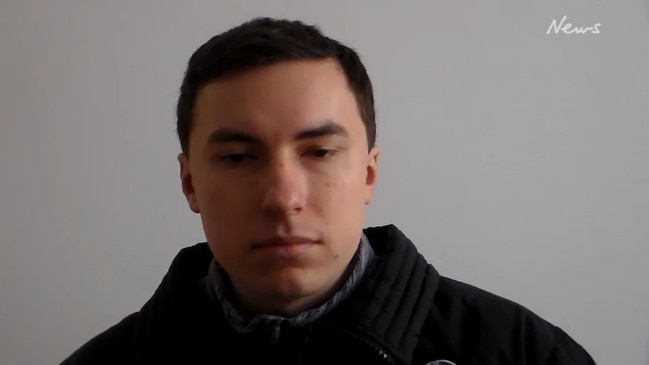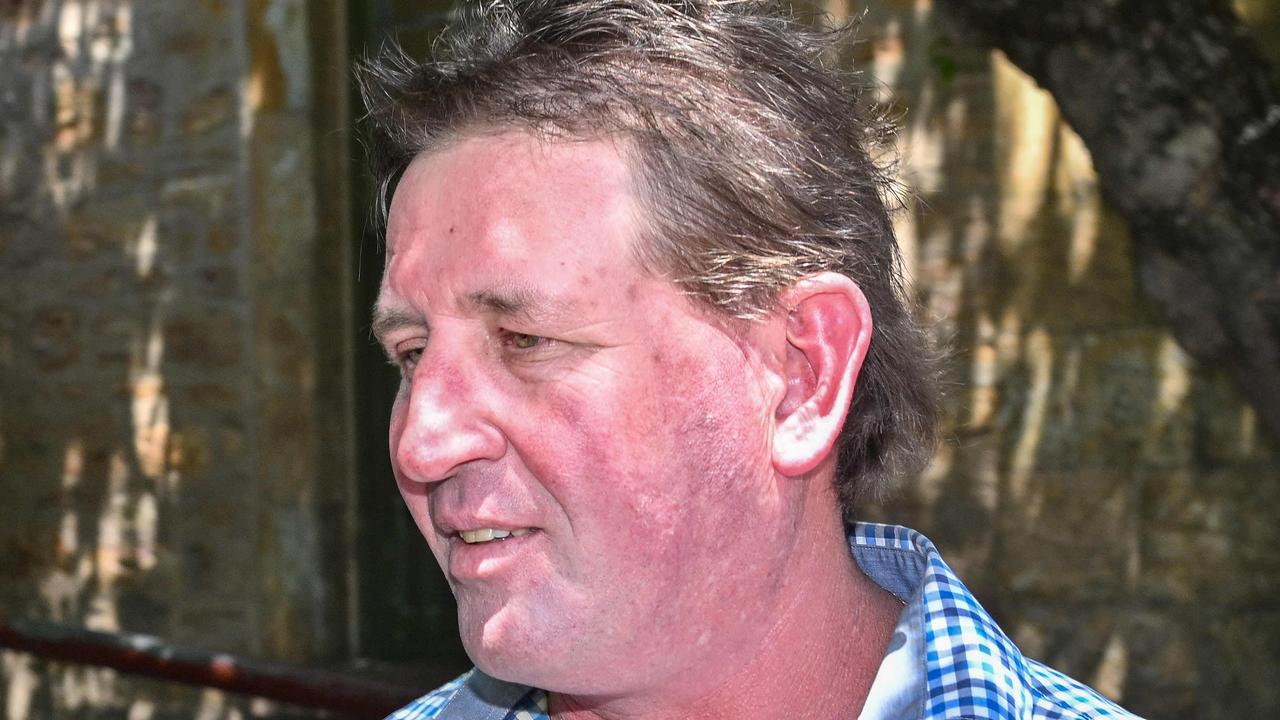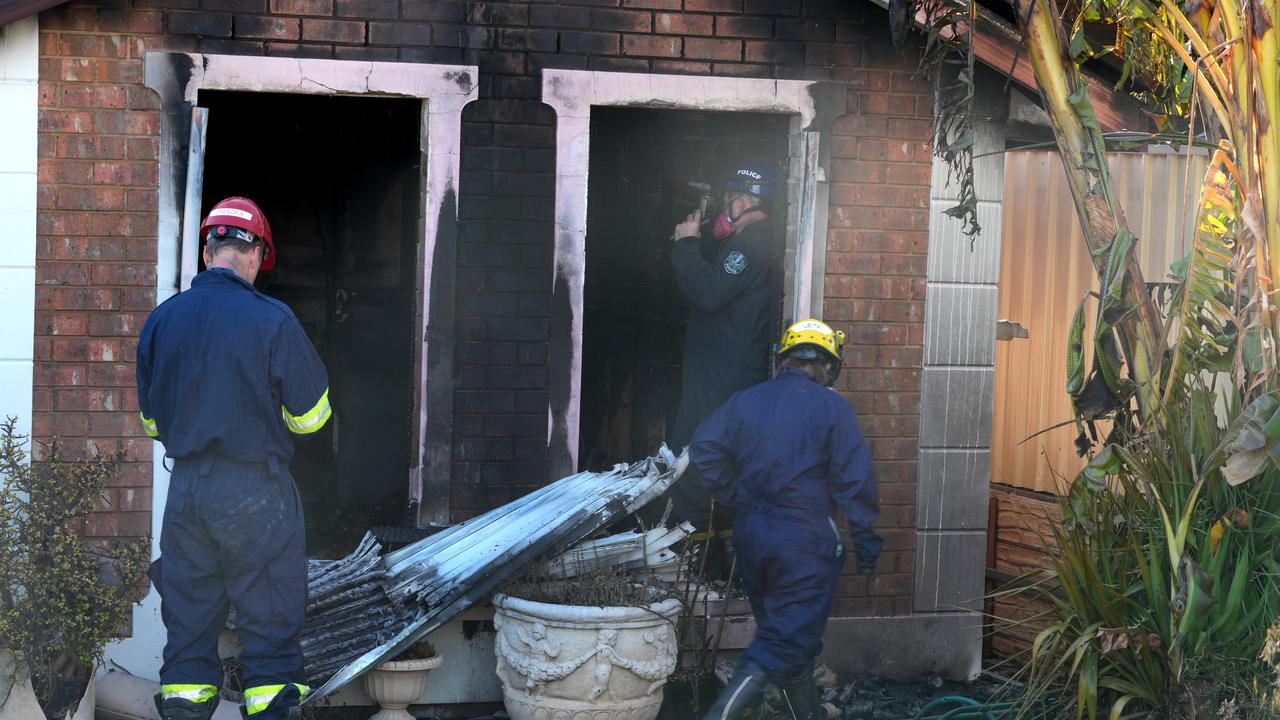Defence closing submissions in trial for terror accused Defence worker Artem Vasilyev
A Defence worker caught with 3D-printed guns and bomb chemicals is “plainly in trouble” but is not a terrorist, a court has heard.

Police & Courts
Don't miss out on the headlines from Police & Courts. Followed categories will be added to My News.
A Defence Department worker caught with 3D-printed guns and explosive chemicals is “plainly in trouble” but not a white nationalist terrorist bent on blowing up a power station, a court has heard.
On Friday, counsel for Artem Vasilyev urged a Supreme Court jury to acquit their client of a terrorism charge, claiming prosecutors were “mashing up” unrelated evidence to make their case.
Scott Henchliffe KC, for Mr Vasilyev, said there was “little evidence” his client undertook digital reconnaissance, or prepared weapons, with the intent to plan to destroy the Cherry Gardens electrical substation.
That, he said, meant Mr Vasilyev should be found not guilty of the terrorism charge – despite having already pleaded guilty to 22 firearms offences.
“Plainly enough, he’s in trouble … he committed those crimes, he pleaded guilty,” he said.
“I’m not suggesting he was not doing illegal things in his home – I’m suggesting that he was not doing them to prepare to attack the Cherry Gardens substation.
“The only ones fascinated with the substation are the prosecution … they have put together a series of unrelated acts and made them something bigger … they are trying to mash it all together.”

Mr Vasilyev, 27, of Findon, has pleaded not guilty to one count of committing other acts done in preparation for, or planning, a terrorist act.
Prosecutors have alleged he conducted digital reconnaissance of, and researched methods to, destroy the Cherry Gardens electrical substation.
They have also alleged Mr Vasilyev obtained explosive substances and manufactured firearms, and looked into methods of “avoiding being discovered”.
Those acts were, they have alleged, part of a plan to commit a terrorist act with the goal of advancing the cause of white nationalism.
During the trial, jurors watched a video of the 3D-printed guns found in Mr Vasilyev’s home, which he describes to police as “toys” and “cool models” for “role-playing”.

On Friday, Mr Henchliffe told jurors the case was a circumstantial one, meaning they had to be satisfied beyond reasonable doubt that prosecutors had proven every one of their claims.
He suggested that could never happen, as the evidence showed Mr Vasilyev printed guns and bought chemicals 18 months before conducting any online search about the substation.
He added his client “did not need” 3D-printed guns to stage an attack, as he already had three legal firearms and one illegal gun in his possession.
“Mr Vasilyev did not know (at that time) there was even a substation there, let alone (think about) attacking it,” he said.
“Some people do like to make things … Mr Vasilyev was undoubtedly curious about a large number of things which he would have been well-advised to leave alone.
“But he was not planning a terrorist act and was not planning to attack the substation.”
Mr Henchliffe said he “would not defend” Mr Vasilyev’s “indefensible” racist comments in online chats, but questioned what value they had in the trial.
“Was he a true believer? Perhaps, perhaps not,” he said.
“Did he mean what he said, or was he just being sarcastic?”
In his closing address, prosecutor Justin Hannebury KC told jurors the trial was about actions, not idealism.
“Mr Vasilyev is not on trial for being a Nazi, he’s not on trial for being a racist, and you are not asked to judge him on the correctness or otherwise of his political views,” he said.
“This is, theoretically, an offence that could be committed by someone who promotes a political view that you absolutely agree with.
“The issue is not his politics, but whether he sought to promote the views he holds through a terrorist act.
“These were not views he intended to promote by handing out ‘how to vote’ cards at a polling booth, but through acts in preparation for a further act – a terrorist act.”
The trial, before Justice Sandi McDonald, continues.






